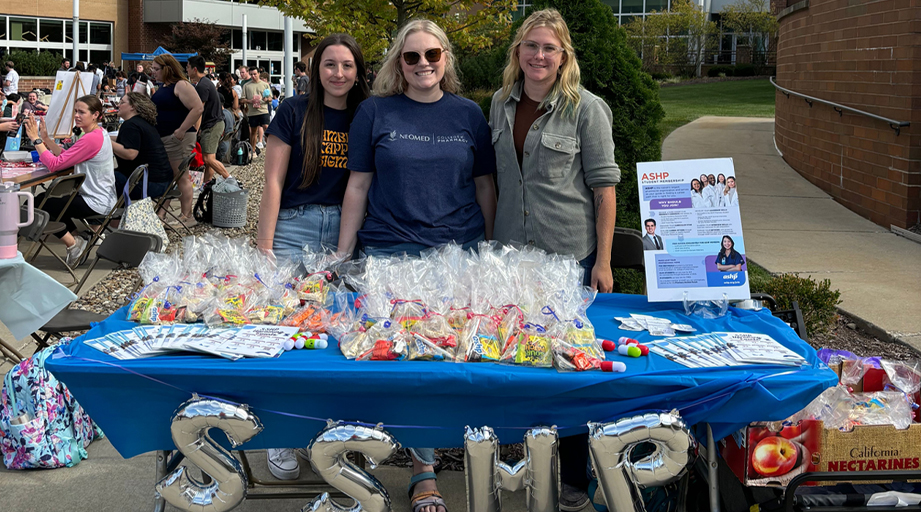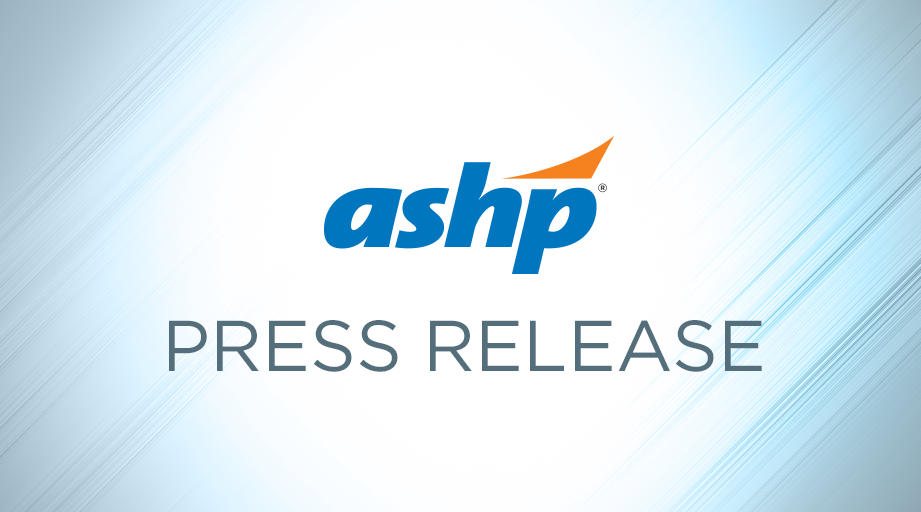
Commonly seen in first responders and healthcare workers, compassion fatigue occurs when professionals take on the emotional stress or trauma of others, such as their patients.
Attendees at Midyear session Living Vicariously Through Our Patients: Recognizing and Preventing Compassion Fatigue learned how to identify signs and symptoms of compassion fatigue, assess practice areas where the fatigue may occur, evaluate challenges associated with managing the condition, and create a plan to mitigate the fatigue and prevent progression to burnout or depression.
Compassion fatigue is defined as the cost of caring for others in emotional or physical pain and is also known as vicarious trauma, secondary traumatic stress, or secondary stress disorder.
 “Compassion satisfaction is when we derive pleasure from our work,” said presenter Carolyn Oxencis, clinical oncology pharmacist at Froedtert and the Medical College of Wisconsin Clinical Cancer Center. “Compassion fatigue tips us to the other end of the scale.”
“Compassion satisfaction is when we derive pleasure from our work,” said presenter Carolyn Oxencis, clinical oncology pharmacist at Froedtert and the Medical College of Wisconsin Clinical Cancer Center. “Compassion fatigue tips us to the other end of the scale.”
Exhaustion, compromised immunity, sleep disturbances, anger, absenteeism, avoidance, impaired clinical decision-making, increased use of alcohol and drugs, cynicism, depersonalization, and a feeling of helplessness are some of the signs and symptoms of compassion fatigue. Unfortunately, there is little data on the impact of compassion fatigue on pharmacists, Oxencis said.
For those who work in oncology and palliative care, compassion fatigue can occur when patients and families are making end-of-life decisions or when patients want to try treatments that may not be approved, Oxencis said.
The compassion fatigue trajectory can start with the “zealot phase,” when individuals are committed and go the extra mile for patients, and then transition to the irritability phase, when corners are cut and patients are avoided, to the withdrawal phase, when exhaustion sets in, patients can become irritants, and you might start to complain about work and personal life, Oxencis said.
The final or “zombie phase” is when hopelessness turn to anger and individuals develop a disdain for patients and become impatient.
Consequences of compassion fatigue include compromised patient care, poor performance, decreased productivity, and increased absenteeism.
Oxencis said pharmacists should set boundaries, ask themselves how personally involved they will get with each patient, and make a plan on how coworkers can use structured or unstructured rituals to handle shared grief.
“What do you do when you have patients who are suffering and you’re working as a team?” Oxencis said. “Reflect on what you can do to help prevent yourself against progressing along the trajectory to the zombie phase.”
 Christi Jen, clinical pharmacy manager at HonorHealth Deer Valley Medical Center in Arizona, spoke about how preceptors can help residents guard against compassion fatigue.
Christi Jen, clinical pharmacy manager at HonorHealth Deer Valley Medical Center in Arizona, spoke about how preceptors can help residents guard against compassion fatigue.
Preceptors can assist learners with developing self-care and coping strategies, take time with learners to reflect on personal experiences, and should consider assessing well-being at regular intervals, said Jen, who was an emergency medicine clinical pharmacist for 11 years.
“Being able to share your experience and being able to listen to their experience really helps provide that support for your learners so that they don’t develop compassion fatigue,” Jen said.
Jen said she encourages preceptors to organize frequent debriefs, particularly after a patient’s death, and to assess and change workloads if needed.
“If anything, as a manager you need to assess and perhaps change the workload of those who report to you,” she said, “Don’t be afraid to take a mental health day.”
This news story was published in the Dec. 9 issue of ASHP’s Midyear 2020 News & Views. The session is available for on-demand viewing until March 10.
Find resources for improving clinician well-being and resilience at wellbeing.ashp.org.








